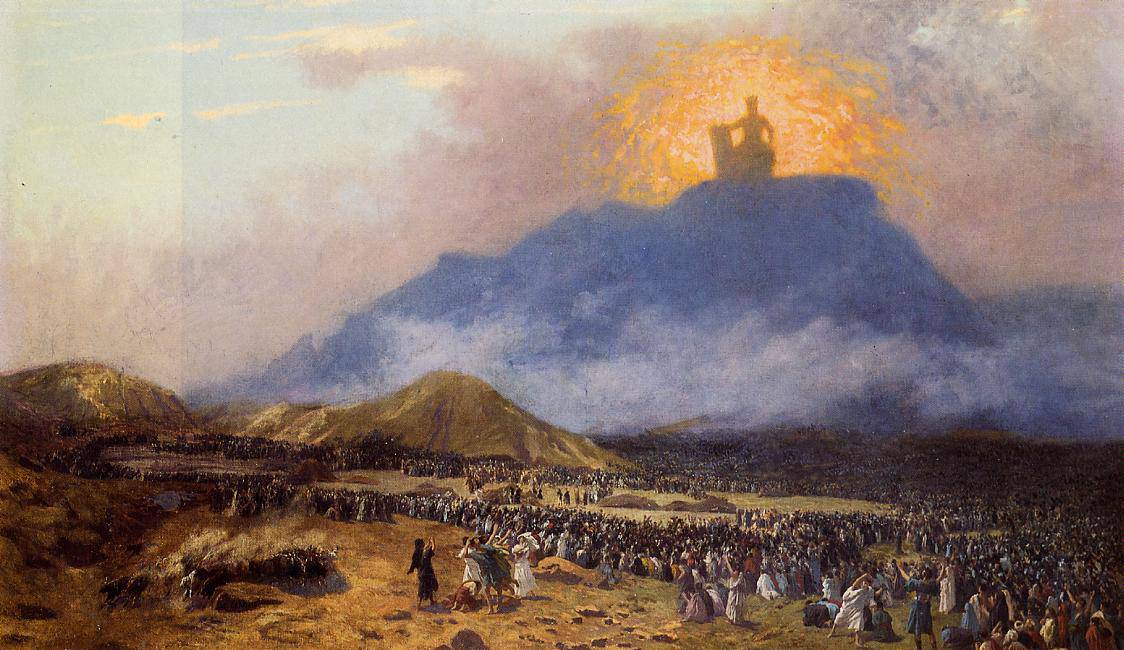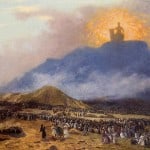Like a Mountain
Moshe Kempinski
The Torah portion of Behar begins with the words “And Hashem spoke to Moshe on Mount Sinai, saying,”( Leviticus 25:1)
Why do we need to know that these words were spoken at Mount Sinai? We already knew where they were encamped. Rashi gives the following explanation;
What special relevance does the subject of Shemittah [the sabbatical seventh year] have with Mount Sinai? Were not all the commandments stated from Sinai? However this is to teach that just as with Shemittah, its general principles and its finer details were all stated from Sinai, likewise, all of them were stated-their general principles together with their finer details-from Sinai.
Yet there is a deeper level to the mention of the Mount. The choice of Mount Sinai was critical. One would have thought that the revelation of G-d’s word into the world would be done on a mountain of gigantic stature. On an Everest or some other mighty and impressive mountain.
The Midrash (Midrash Psalms 68:17) states that G-d chose Mt. Sinai for the “Giving of the Torah” because in fact it was “the smallest of all mountains.” This was to ensure that man would know that the key to receiving Divine revelation and inspiration necessitates a sense of humility. This may give deeper insight to the verse in psalms that discusses the mountains that inspire;
” I lift up my eyes to the hills. From where ( Mei-Ayin) does my help come?”(psalm 121:1).
The words “From where ( Mei-Ayin) ” also denotes from Nothingness (Mei-Ayin) . That is to say. From my accepting the smallness of “me” allows for the greatness of Him to enter.
The Sfat Emet then asks that if that is so, then why G-d not give the Torah in a valley.
The Sfat Emet answers that G-d did not want the vessels of His revelation to be so completely self-effacing. We need to be somebody in order to make room in ourselves to be less. We have been privileged to be the language of Hashem as His plan unfolds in this world. As a result we need to break away from the subservient and stooped image we adopted while living under the ravages of exile for two thousand years.
So the experience at Mount Sinai was meant to be a lesson. We need to be humble vessels and yet we cannot think of ourselves as totally unworthy.
All this explains the impact on the individual level. We still need to explore why this event was so impactful on all of mankind’s common spiritual experience and psyche. Many faiths began with the inspired vision of one man, a visionary, a prophet. It was the character and passion of that individual that then inspired the passion and vision of many.
Yet at Mount Sinai something else occurred. G-d did not just appear to Moshe in a private vision He appeared before a people which then consisted of over two million people
The Kuzari explains that the very public nature of this event was an integral and important feature of the revelation. Moshe in his final address to his people reiterates its importance several times “You have been shown in order to know that God, He is the Supreme Being. There is none besides Him. From heaven he let you hear His voice in order to teach you, and on earth He showed you His great fire, and you heard His words amid the fire.”(Deut. 4:32-36)
We need to make room in our soul as individuals and as a people to be able to clearly hear the” Still Small Voice” . Yet on the other hand we also need to reach into our psychic genetic memory and remember that in fact we all ” heard His words amid the fire.”(Deut. 4:32-36).One needs a sense of humility to “listen” but a sense of worthiness to act.
As Rav Hillel is quoted in Pirke Avot ( Ethics of the Fathers);
If I am not for myself, who will be for me? If I am not for others, what am I? And if not now, when?
These words and thoughts should be engraved in the hearts of our leaders as they will need to stand against the threats of our enemies and the so called helpful suggestions of our allies.

